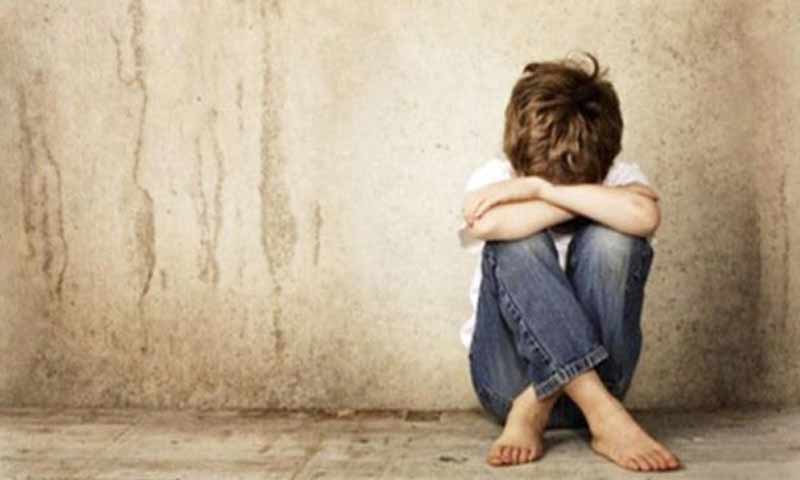



Enab Baladi – Nour Ramadan
Social networking sites have been buzzing with the story of three Lebanese youths verbally and physically abusing a 13-year-old Syrian boy, who is born to a Lebanese mother in the town of Sohmor, Western Bekaa, one of the strongholds of Hezbollah.
After media outlets and activists circulated on social media sites a disturbing video showing the three young men forcing the boy to engage in sexual acts, beating, insulting, and assaulting him, the boy’s case has become a public opinion issue in Lebanon and Arab counties.
The boy’s case was highlighted by the media as well as many human rights activists demanded justice for the Syrian boy, prompting the responsible authorities to follow up on the case.
Local media outlets reported that the child’s mother had filed a complaint with the security forces, which refused to arrest those involved in the crime for “clan reasons.”
The General Directorate of the Internal Security Forces in Lebanon launched an investigation into the case, which revealed that the involvement of eight men in the incident after initial information indicated that the child was raped by three.
The security forces have arrested three suspects in the rape of the child while the others are still out of sight.
Activists on social media launched “Justice for the Syrian child” hashtag, which became the most trending in Lebanon with the participation of artists, and media professionals from Lebanon, Syria, and Arab countries.
The case opened the door for a broader discussion of the exposure of children in general, and the Syrian ones in Lebanon in particular, to sexual or physical violations, amid challenges in pursuing fair accountability because the perpetrators of child abuse are often members of influential political parties in Lebanon.
For two years, the eight youths continued their sexual offending against the child, which raised questions about the failure to reveal these attacks earlier, according to BBC news.
Lebanese lawyer Diala Shehadeh spoke to Enab Baladi about the legal measures that parents should undertake when their children are exposed to violations.
Shehadeh said that the parents must lodge a complaint at the police station in their district within 24 hours of the violation and if the duration of the crime exceeds that, the claim must be submitted to the Public Prosecutor’s Office, noting that they can do this without a lawyer.
Syrians who fear to review the Internal Security Forces or the court, due to their illegal residency status, can contact the Lebanese Association for the Protection of Juvenile Delinquents (UPEL) to help them follow up on these issues.
The President of the UPEL Mrs. Amira Sukkar spoke to Enab Baladi about the role the UPEL plays in helping the victims in prosecuting cases of rape and sexual harassment, making their voices heard in the court and protecting their rights.
She added that the association complained to the Lebanese Public Prosecutor’s Office about the child’s incident.
| The Lebanese Association for the Protection of Juvenile Delinquents (UPEL) is an official organization that cooperates with the judiciary to provide delegates on children’s issues, helps provide lawyers to follow up on their cases, and supports children and their families psychologically and socially. |
Child sexual abuse and ill-treatment can affect psychological and physical well-being adversely, and they have direct and far-reaching repercussions.
Victims of child sexual abuse are more likely to experience post-traumatic stress disorder symptoms, eating and sleeping disorders, isolation, withdrawal, and insecurity.
The consequences of maltreatment can have a negative impact on the children’s behavior, communication capabilities, educational attainment, and academic performance, according to psychiatrist Wael al-Ras.
Al-Ras, in an interview with Enab Baladi, pointed out that long-term effects of disturbances, which appear two weeks or months after the accident occurs, cause fear among the victims of the places where he/she got assaulted, people, as well as sleeping difficulty, anxiety, and nervousness.
The psychiatrist indicated that 20 percent of children who experience sexual abuse or assault could have these symptoms.
Regarding the role of the parents, al-Ras stressed that they must help the child with building a positive feeling permanently and enhance his self-confidence, by strengthening the child’s activities such as reading and writing, in addition to creating an atmosphere to communicate with normal children. Besides, they should not remind him of the incident or bring its details back.
He explained that society has a significant role in providing education to increase knowledge about the seriousness of sexual assault and preventing these actions through judicial, religious, and administrative authorities, isolating the abuser, and providing a better social environment for children.
if you think the article contain wrong information or you have additional details Send Correction